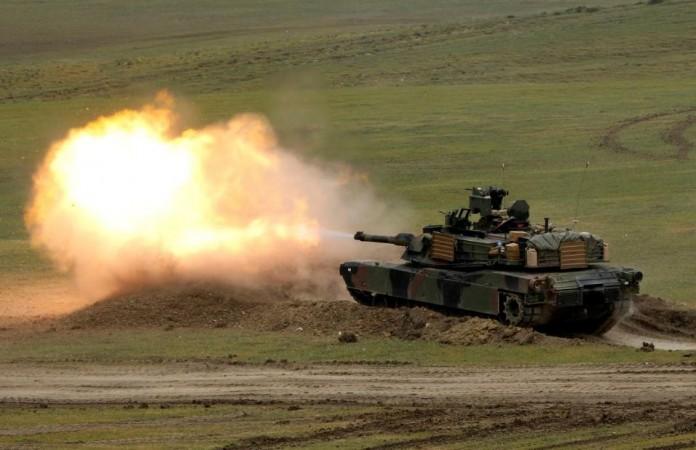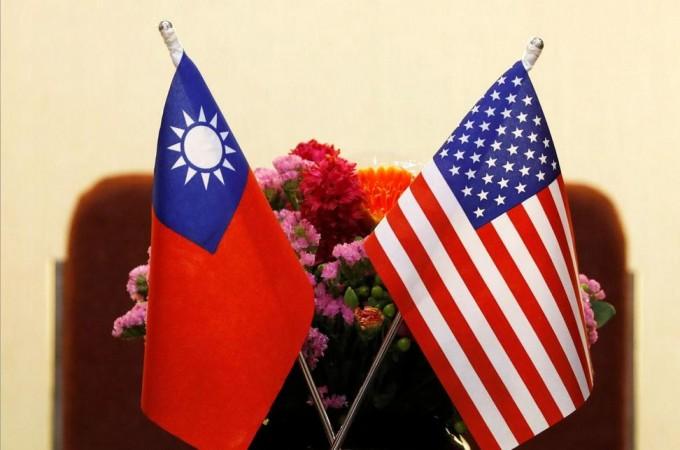
The United States is pursuing the sale of more than $2 billion worth of tanks and weapons to Taiwan, four people familiar with the negotiations said, sparking anger from Beijing which is already involved in an escalating trade war with Washington.
Taiwan's Defence Ministry confirmed it had requested those weapons and that the request was proceeding normally.
The US commitment to providing Taiwan with the weapons to defend itself helps Taiwan's military to raise its combat abilities, consolidates the Taiwan-US security partnership and ensures Taiwan's security, the ministry said in a statement.
The Chinese government condemned the planned sale.
"We are severely concerned about the US move and are firmly against US arms sales to Taiwan," Foreign Ministry spokesman Geng Shuang told a daily news briefing in Beijing.
China urges the United States to stop arms sales to Taiwan and prudently deal with issues relating to Taiwan to prevent harm to bilateral relations and peace and stability in the Taiwan Strait, he added.
CHINA HAWK
US President Donald Trump's administration rolled out a long-awaited overhaul of US arms export policy in 2018 aimed at expanding sales to allies, saying it would bolster the American defense industry and create jobs at home.
Trump's trade adviser Peter Navarro was one of the administration's architects of that policy. Navarro, a China hawk, wrote about the possible sale of tanks to Taiwan in a March opinion column in the New York Times ahead of a presidential trip to the Lima, Ohio, plant where they are made.

At a low point, the US Army had only one tank coming from the plant a month, General Dynamics CEO Phebe Novakovic said during an April conference call with investors, but said "we'll be rolling out 30 tanks a month by the end of this year," partly because of international orders.
The Pentagon announced last week it would sell 34 ScanEagle drones, made by Boeing Co, to the governments of Malaysia, Indonesia, the Philippines and Vietnam for $47 million.
The drones would afford greater intelligence-gathering capabilities, potentially curbing Chinese activity in the region.
China claims almost all of the strategic South China Sea and frequently lambastes the United States and its allies over naval operations near Chinese-occupied islands. Brunei, Indonesia, Malaysia, the Philippines, Taiwan and Vietnam all have competing claims.
China's Defense Minister Wei Fenghe warned the United States at the Shangri-La Dialogue in Singapore last weekend not to meddle in security disputes over Taiwan and the South China Sea.
Acting US Defense Secretary Patrick Shanahan told the meeting that the United States would no longer "tiptoe" around China's behaviour in Asia.
Taiwan's Foreign Ministry told Reuters, Wei's "threatening" comments and recent Chinese military drills near Taiwan showed the importance of its need to strengthen its defensive abilities.
"Going forward our government will continue to deepen the close security partnership between Taiwan and the United States," it said.

















